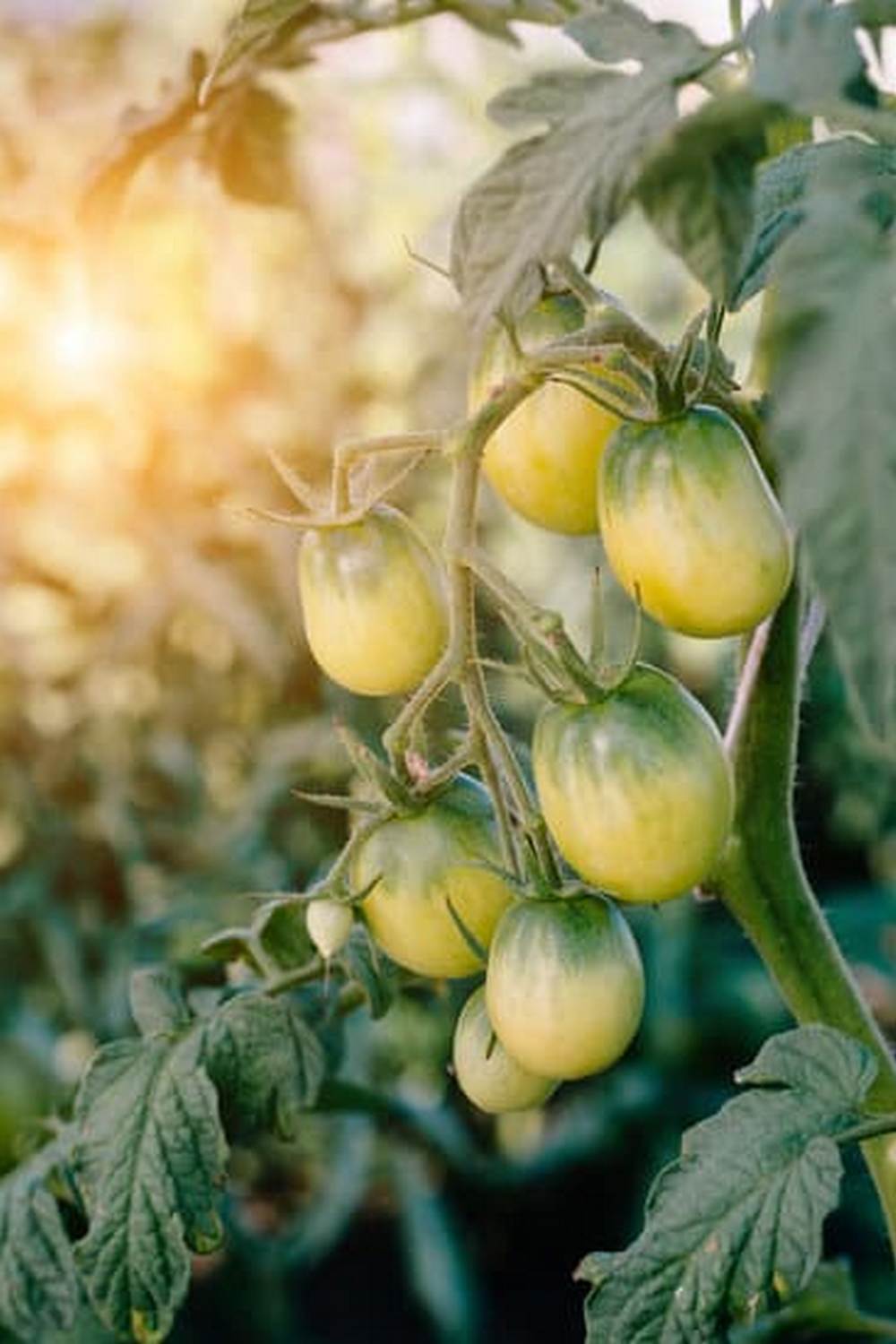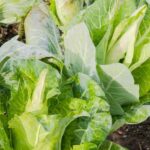Are you wondering, can you use Preen in vegetable gardens? Preen is a popular weed control product that gardeners often turn to for keeping their garden beds free from unwanted plants. In this article, we will explore the use of Preen specifically in vegetable gardens and discuss its potential benefits, concerns, best practices, and alternatives.
Preen is a pre-emergent herbicide that prevents weed seeds from germinating. Its purpose is to create an environment where weeds are unable to grow, allowing your desired plants to thrive without competition for nutrients and sunlight. This can be especially beneficial in vegetable gardens where the presence of weeds can disrupt the growth and yield of your crops.
Understanding the different types of Preen products available is crucial for determining their suitability for use in vegetable gardens. From granules to sprays, there are various formulations designed for specific applications and plant types. It’s important to choose the right product that aligns with the needs of your vegetable garden while being safe for edible plants.
Understanding the Different Types of Preen Products Available
Preen offers a variety of products designed to help gardeners control weeds and maintain the health and beauty of their landscapes. The most common Preen products available for use in vegetable gardens include Preen Garden Weed Preventer, Preen Vegetable Garden Organic Weed Preventer, and Preen Natural Vegetable Garden Weed Preventer. Each product is formulated to target specific types of weeds and offer varying degrees of protection for vegetables.
Preen Garden Weed Preventer is a popular choice among gardeners for its ability to prevent weed seeds from germinating. It creates a barrier on the soil surface that inhibits weed growth, making it an effective tool for keeping vegetable gardens free of unwanted plants.
For those who prefer organic gardening methods, Preen also offers a Vegetable Garden Organic Weed Preventer. This product is made from 100% corn gluten meal and is approved for use in organic gardening by the USDA National Organic Program. It helps prevent weeds from sprouting while also providing essential nutrients to support the growth of healthy vegetables.
In addition, Preen Natural Vegetable Garden Weed Preventer is a specialized formula that utilizes iron to kill existing weeds without harming vegetables or other plants. This natural alternative allows gardeners to effectively manage weeds while maintaining the organic integrity of their vegetable gardens.
Each type of Preen product has its own unique features and benefits, allowing gardeners to choose the best option for their specific needs and preferences. By understanding the differences between these products, gardeners can confidently select the most suitable Preen solution for their vegetable gardens.
Overall, with the range of options available, using Preen in vegetable gardens can be a beneficial addition to your garden maintenance routine. By choosing the right product based on your gardening goals and values, you can effectively reduce weed growth and promote the health and productivity of your vegetable crops.
The Potential Benefits of Using Preen in Vegetable Gardens
Preen is a popular weed preventer that can be used in vegetable gardens to help keep your plants healthy and productive. There are several potential benefits to using Preen in vegetable gardens, including:
- Preventing weed growth: Preen works by creating a barrier on the soil surface that inhibits weed seeds from sprouting. This can help reduce the amount of time and effort spent on weeding, allowing you to focus on caring for your vegetables instead.
- Protecting plant health: By preventing weeds from growing, Preen can help reduce competition for water, nutrients, and sunlight. This can lead to healthier and more robust vegetable plants that are better able to resist diseases and pests.
- Improving garden aesthetics: Weeds can detract from the visual appeal of a vegetable garden, making it look untidy and unkempt. Using Preen can help maintain a neat and tidy appearance in your garden, allowing your vegetables to take center stage.
It’s important to note that while there are potential benefits to using Preen in vegetable gardens, there are also some considerations to keep in mind. For example, it’s crucial to use Preen according to the label instructions and avoid applying it directly onto vegetable plants. Additionally, some gardeners have expressed concerns about the impact of using pre-emergent herbicides like Preen on beneficial insects and soil microorganisms.
Ultimately, whether or not using Preen in your vegetable garden is right for you will depend on your gardening goals and values. It’s always a good idea to consider alternative methods of weed control as well, such as mulching or hand-weeding in combination with proper spacing and watering practices.
Common Concerns and Misconceptions About Using Preen in Vegetable Gardens
Many gardeners have expressed concerns and misconceptions about using Preen in their vegetable gardens. It is important to address these issues and provide clarity on the topic.
One common concern is whether Preen is safe for use in vegetable gardens. Some gardeners worry that the chemicals in Preen may be harmful to the vegetables and ultimately to those who consume them.
However, it is important to note that there are different types of Preen products available, some of which are specifically designed for use in vegetable gardens. These products are formulated to be safe for edible plants, providing effective weed control without posing a risk to human health when used as directed.
Another misconception about using Preen in vegetable gardens is that it will harm beneficial insects or pollinators. While it is true that some weed control products can have negative effects on beneficial insects, many Preen products are designed to target only germinating weed seeds, leaving established plants and desirable wildlife unharmed.
Additionally, using Preen as directed, with adherence to application guidelines and best practices, can actually help create a healthier environment for beneficial insects by reducing competition from weeds and minimizing the need for potentially harmful chemical sprays.
In addition, some gardeners express concern about the potential impact of using Preen on soil health and overall plant productivity in their vegetable gardens. This is a valid concern as maintaining the health of the soil is crucial for successful gardening.
When used properly, however, Preen products can actually contribute to healthier soil by reducing competition from weeds and allowing nutrients to be more readily available to vegetable plants. It’s also important for gardeners to implement good organic gardening practices alongside the use of Preen in order to maintain optimal soil health and maximize plant productivity.
- Common concerns:
- Safety of chemicals
- Harmful effects on beneficial insects
- Impact on soil health
By addressing these concerns and misconceptions with accurate information, gardeners can make informed decisions about whether or not they want to incorporate Preen into their vegetable gardening routine.
Guidelines and Best Practices for Using Preen in Vegetable Gardens
Preen is a popular weed control product that many gardeners use to keep their gardens free of unwanted plants. When it comes to using Preen in vegetable gardens, there are specific guidelines and best practices to follow to ensure the product’s effectiveness without harming your edible plants.
Understanding Application Timing and Frequency
One of the most important factors to consider when using Preen in vegetable gardens is the timing of application. It is crucial to apply Preen before planting any vegetables, as this will prevent any potential damage to the seeds or young plants. Additionally, it is recommended to reapply Preen every 9-12 weeks for continuous weed control throughout the growing season.
Proper Application Techniques
When using Preen in vegetable gardens, it is essential to follow the application instructions provided on the product packaging carefully. Make sure to evenly distribute the granules over the soil surface and water them immediately afterward. This will help activate the product and create a barrier that prevents weed seeds from germinating.
Cautions and Considerations
While Preen can be effective in controlling weeds in vegetable gardens, it is important to exercise caution when using it. Ensure that you do not apply excessive amounts of Preen, as this may lead to adverse effects on your vegetable plants. Additionally, always read the product label thoroughly to understand any specific cautions or considerations for use in vegetable gardens.
By following these guidelines and best practices for using Preen in your vegetable garden, you can effectively control weeds without compromising the health of your edible plants. Remember that proper application timing and technique are crucial for successful weed control while maintaining a flourishing vegetable garden.
Alternatives to Preen for Weed Control in Vegetable Gardens
There are several alternatives to Preen that can be used for weed control in vegetable gardens. One popular alternative is using organic mulch such as straw, wood chips, or compost. Mulch not only helps to suppress weed growth by blocking sunlight, but it also retains moisture in the soil and adds organic matter as it breaks down.
Another alternative to Preen is hand weeding. While it may be more time-consuming, hand weeding allows for precise removal of weeds without the use of chemicals. It also provides an opportunity to inspect plants for pests and diseases.
Cover crops are another effective alternative to Preen for weed control in vegetable gardens. The thick growth of cover crops shades out weeds and their extensive root systems help improve soil structure and fertility. Additionally, cover crops can attract beneficial insects and improve overall garden ecosystem health.
Some gardeners also use landscape fabric or cardboard as a barrier to prevent weed growth. Both options block sunlight and smother weeds while still allowing water to penetrate the soil. However, it’s important to make sure that the fabric or cardboard is completely covered with mulch to maintain its effectiveness.
These alternatives provide eco-friendly and chemical-free options for controlling weeds in vegetable gardens without resorting to the use of Preen or other pre-emergent herbicides. Each method has its own benefits and drawbacks, so it’s essential to consider factors such as cost, time commitment, and overall impact on plant health when deciding which approach will work best for your vegetable garden.
Real-Life Experiences and Success Stories of Using Preen in Vegetable Gardens
Increased Productivity and Plant Health
Many gardeners have reported significant improvements in the health and productivity of their vegetable gardens after using Preen. By preventing the growth of weeds, Preen allows plants to access more nutrients, water, and sunlight, which leads to better growth and higher yields. Additionally, without competition from weeds, vegetables have a better chance of thriving and staying healthy throughout the growing season.
Time-Saving Benefits
One of the most commonly mentioned benefits of using Preen in vegetable gardens is the time saved on weeding. With fewer weeds to pull or remove, gardeners can spend more time on other important tasks such as planting, watering, and harvesting. This not only makes gardening more enjoyable but also allows for better management of the entire garden.
Positive Environmental Impact
Gardeners who use Preen in their vegetable gardens often highlight its positive environmental impact. By reducing the need for manual weeding or chemical herbicides, Preen helps maintain a healthier ecosystem within the garden. This can lead to improved soil quality, increased biodiversity, and overall sustainability in vegetable gardening practices.
These real-life experiences and success stories demonstrate how using Preen in vegetable gardens
Expert Tips and Recommendations for Effectively Using Preen in Vegetable Gardens
When considering the use of Preen in your vegetable garden, it’s important to understand the product and its application. Preen is a pre-emergent herbicide that is designed to prevent weed seeds from germinating, making it an effective tool for controlling weeds in gardens. However, it is crucial to ensure that you are using the right type of Preen for your specific needs.
One of the key recommendations when using Preen in vegetable gardens is to carefully read and follow the product label instructions. Different types of Preen products are available, each with its own set of guidelines for application and use. It’s essential to select a product that is safe to use in vegetable gardens and adhere to the recommended application rates.
Another important tip for effectively using Preen in vegetable gardens is to time the application correctly. Applying Preen too early or too late can reduce its effectiveness. It is typically recommended to apply Preen after planting vegetables and when the soil temperature reaches a certain level, as specified on the product label.
It’s also worth noting that while Preen can be a valuable tool for weed control in vegetable gardens, it should not be relied upon as the sole solution. Mulching, hand-weeding, and proper crop rotation are all important practices that can complement the use of Preen and contribute to a healthy and productive vegetable garden.
| Expert Tips | Recommendations |
|---|---|
| Carefully read and follow product label instructions | Select a product safe for vegetable gardens |
| Time application correctly according to soil temperature | Use complementary practices like mulching and hand-weeding |
Conclusion
In conclusion, the use of Preen in vegetable gardens can be a helpful tool for controlling weeds and promoting the health and productivity of your plants. While there are different types of Preen products available, it is important to understand the specific needs of your garden and choose the right one for your situation. With proper use, Preen can effectively prevent weed growth without harming your vegetables, giving them a better chance to thrive.
Despite some concerns and misconceptions about using Preen in vegetable gardens, following guidelines and best practices can minimize any potential risks. It’s important to apply Preen correctly and at the right time to ensure its effectiveness without causing harm to your plants. Additionally, considering alternatives to Preen for weed control in vegetable gardens may also offer benefits while addressing any reservations about its use.
Overall, real-life experiences have shown that with proper application, using Preen in vegetable gardens has led to success stories of improved plant health and increased productivity. By following expert tips and recommendations for effectively using Preen in vegetable gardens, you can maximize its benefits while minimizing any negative impact on your plants. As with any gardening product, understanding how to use it responsibly is key to achieving the desired results.
Frequently Asked Questions
Is Preen Safe in a Vegetable Garden?
Preen is generally considered safe to use in a vegetable garden as long as it is applied correctly. It’s important to carefully read the label and follow the instructions to ensure the safety of your plants and soil.
Can You Put Pre-Emergent in Vegetable Garden?
It’s not recommended to put pre-emergent in a vegetable garden, as it can prevent seeds from germinating, including those of the vegetables you want to grow. Using natural mulch or hand-weeding may be a safer option.
How Do I Keep Weeds Out of My Vegetable Garden?
To keep weeds out of your vegetable garden, consider using organic mulch such as straw, leaves, or grass clippings to smother weed growth. Hand-pulling weeds regularly and applying landscape fabric can also help keep weeds at bay.

If you’re looking to get into vegetable gardening, or are just looking for some tips on how to make your current garden better, then you’ve come to the right place! My name is Ethel and I have been gardening for years. In this blog, I’m going to share with you some of my best tips on how to create a successful vegetable garden.





